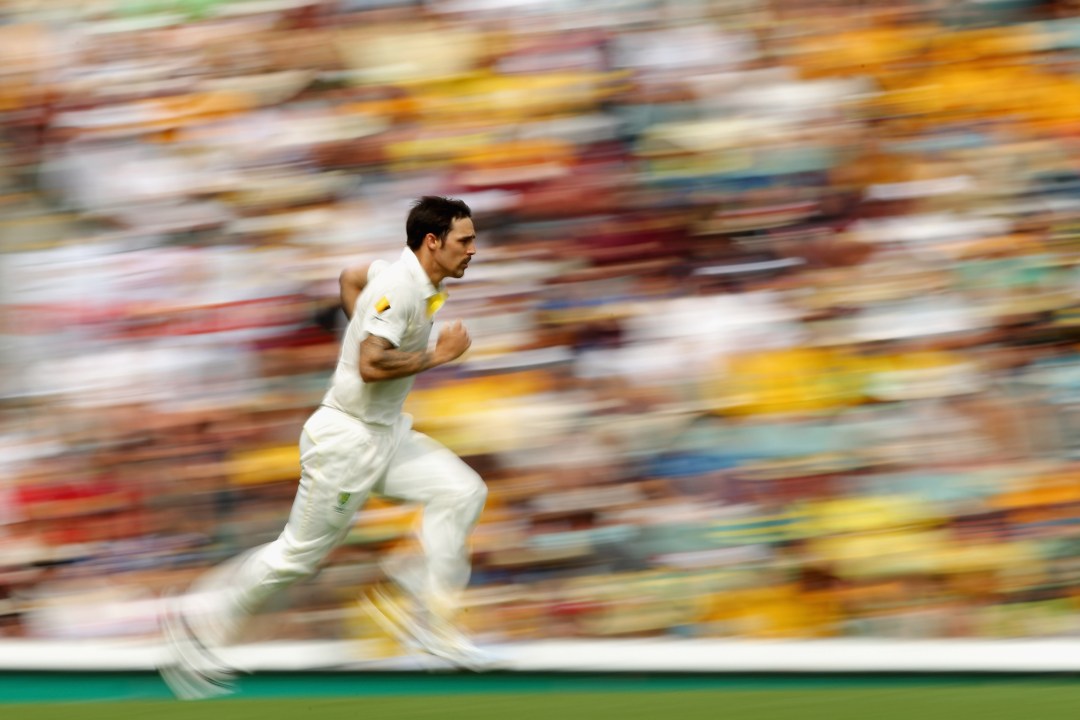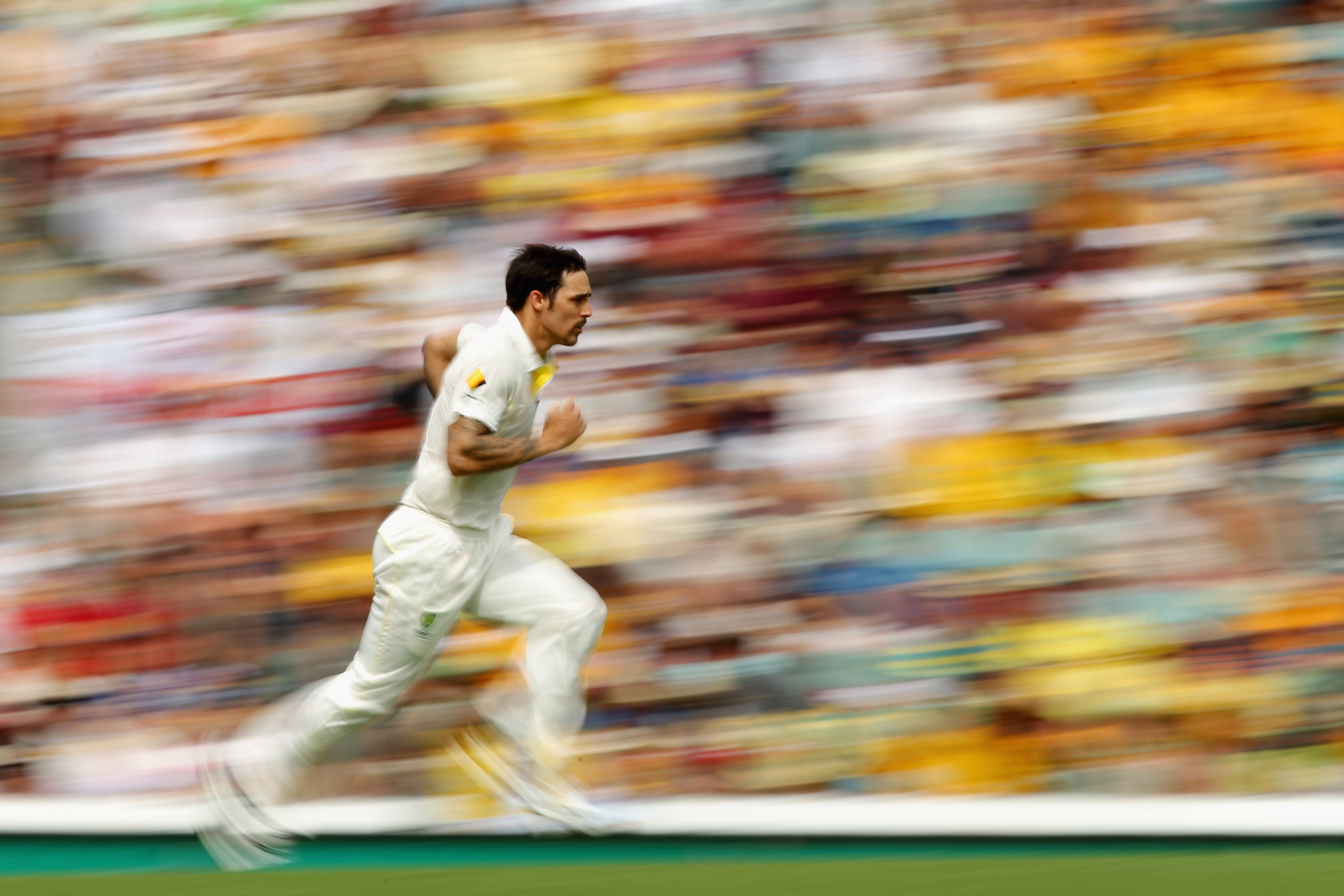Don’t say you weren’t warned. You were. “Australia will win at least one test this winter…England will have a bad test or Australia an extremely good one…This is an Australian side learning who it is. There are signs of improvement, signs that on their day they could be formidable. (The question being, as before, how many of those days there will be). Meanwhile, England are solid but not perhaps quite as good as they think they are. Brilliant individual performances saved the English collective in this series. They are not a team in transition but nor are they quite a team going anywhere.”
That was this blog’s verdict on the last Ashes series. England’s 3-0 victory was both clear-cut and less than it seemed. England took their chances, Australia squandered theirs and Ian Bell’s runs accounted for much of the difference between the teams.
All across England today there are cricket fans trying to draw some gallows comfort from last night’s capitulation. Some folk pretend this kind of collapse is oddly reassuring, as familiar as a “dog-eared book from childhood”. It’s a nice conceit but, in the end, just a pretence. England were rank last night.
As Sir Geoffrey Boycott put it, “England have an 82-page booklet on what to eat but one guy comes in and bowls at 90mph and they can’t handle it”. Quite. Moreover, we apologise for suggesting that Mitchell Johnson couldn’t locate a cow’s arse even with the aid of an illuminated banjo. We now acknowledge that he’s the Robert Oppenheimer of fast-bowling. A veritable “destroyer of worlds” and a Pom-basher to rank alongside the Demon Spofforth, Ray Lindwall, Dennis Lillee and bloody Glenn McGrath. Probably better than any of them, actually.
There are batting collapses and then there are batting collapses. Subsiding from 82/2 to 91/8 is the latter kind. You’re supposed to add two wickets to the score to get the implied state of play, not six.
The list of disappointments is a long one. Panic is infectious but only Michael Carberry managed to hang around for more than 50 deliveries. For all the credit Australia’s bowlers merited, England batted with a sorry lack of application. A little pace and a little bounce should not have unnerved them as completely as it evidently did. But in the midst of a collapse any delivery, no matter how innocuous, can become a jaffa. Batsmen create their own monsters and succumb to them with a meekness that seems pre-destined and even, sometimes, almost as though it has been somehow self-willed.
We knew, before this test began, that the Australian bowling attack might match England’s but we comforted ourselves with the thought that England’s batting remained superior to Australia’s. We assumed that Cook and Trott and Pietersen and Prior would reassert themselves after their disappointing English summer and remind us of their class. We trusted in the law of averages.
Of course one innings, no matter how desperate, does not a series make. England escaped from Brisbane with a draw last time they visited the Gabba and perhaps they can again. But they will need to bat for six sessions to do so.
The trouble with the law of averages, however, is that it suggests that, on recent evidence, there is less between the two teams’ batting than career accomplishments suggest. Australia remain a poor batting side but England, alas, have become a bad batting side. The figures endorse this gloomy suggestion.
In 31 tests since January 2011 Jonathan Trott averages 40. He has four centuries in his last 57 innings, scoring just enough to make sure of his place but rarely enough to make decisive contributions. His evident discomfort against the short ball is something that, unless rectified swiftly, will end his career sooner than you might think.
It is, in fact, a mystery that it took opponents so long to work Trott out. He has two “trigger” movements, each of which take him forward, not back, and leave him ill-placed to deal with the rising delivery. His weight is forward, not back and yesterday he often attempted to play Johnson from in front of the crease, not behind it. He could have been out at any time and his dismissal in the last over before lunch was the pivotal moment in England’s innings.
If Trott struggles to go back, Cook falters when coming forward. For the rest of this series you will be able to measure the quality of the Australian bowling by seeing how often Cook has the freedom to pull or cut. The skipper averages 34 in 2013, the kind of recent record that might be almost respectable for an Australian test batsman but which is beneath Cook.
As for Pietersen, well, the great man averages 35 this calendar year and that figure is falling, not rising. He has 4 centuries in his past 40 test innings and averages only 40 since January 2012. The ratio of centuries to innings played is a crude measurement, to be sure, but also a useful one. Pietersen has averaged a hundred every 7.5 innings through his career; slumping to a ton every ten innings these past two years is a decline as worrying as it is serious.
And Matt Prior’s troubles continue. A first-baller yesterday, his third this year, unbuckled his swash yet again. Prior has rescued England often enough in the past but his fire engine is, for the time being at least, out of water. Like Cook and Pietersen his average in his last 26 tests languishes in the mid-30s. Useful but not good enough.
It would be daft to claim that Cook’s career is in decline but it is certainly in lull at present. Pietersen, too, will surely have moments of greatness again. But with Carberry and Root still feeling their way at test level, England urgently need KP’s genius to reassert itself.
But that in turn will be aided by a return to form for Cook and Trott. The latter’s troubles are the most worrying and not just because number three is the most important position in the batting line-up. It is the position from which holes are dug or filled-in. At present England – and Trott – are doing a lot of digging. For three years now Trott has been only ordinary but because England have generally been winning this has not been too great a problem. It might become one this winter.
Australia’s total of 295 had looked inadequate but the wisdom of the old adage that no conclusions should be drawn until both sides have had a hit has rarely been so comprehensively demonstrated. Worse still, if such a thing can be imagined, England know they let Australia escape. Credit belong to Haddin and Johnson, of course, but at 132/6 England had the chance to scuttle Australia for less than 200. It was a chance they missed as, once again, Australia’s lower order helped make-up for the specialist batsmen’s manifest inadequacy. If only England’s proved as robust!
Perhaps England can still escape. More probably, Australia will establish a lead of 550 before declaring. Yesterday’s disaster – the word is not too strong – has given Australia’s batsmen belief too and since cricket, more than most sports, is a game of nerve and confidence this may yet produce spillover effects that last for the entire series.
As for England: well, again, they are not quite as good as they like to think they are. Somewhere and somehow that fact seems to have got lost in all the meticulous and best-ever preparation.
It would be absurd to say the Ashes are lost on the back of one calamity but past events influence future events and Australia have reason to believe while England, now, are left to assume they cannot bat as feebly again. Except, of course, they can. And might.
Still, I suppose Dan Hodges will be happy. And, look, he is!








Comments